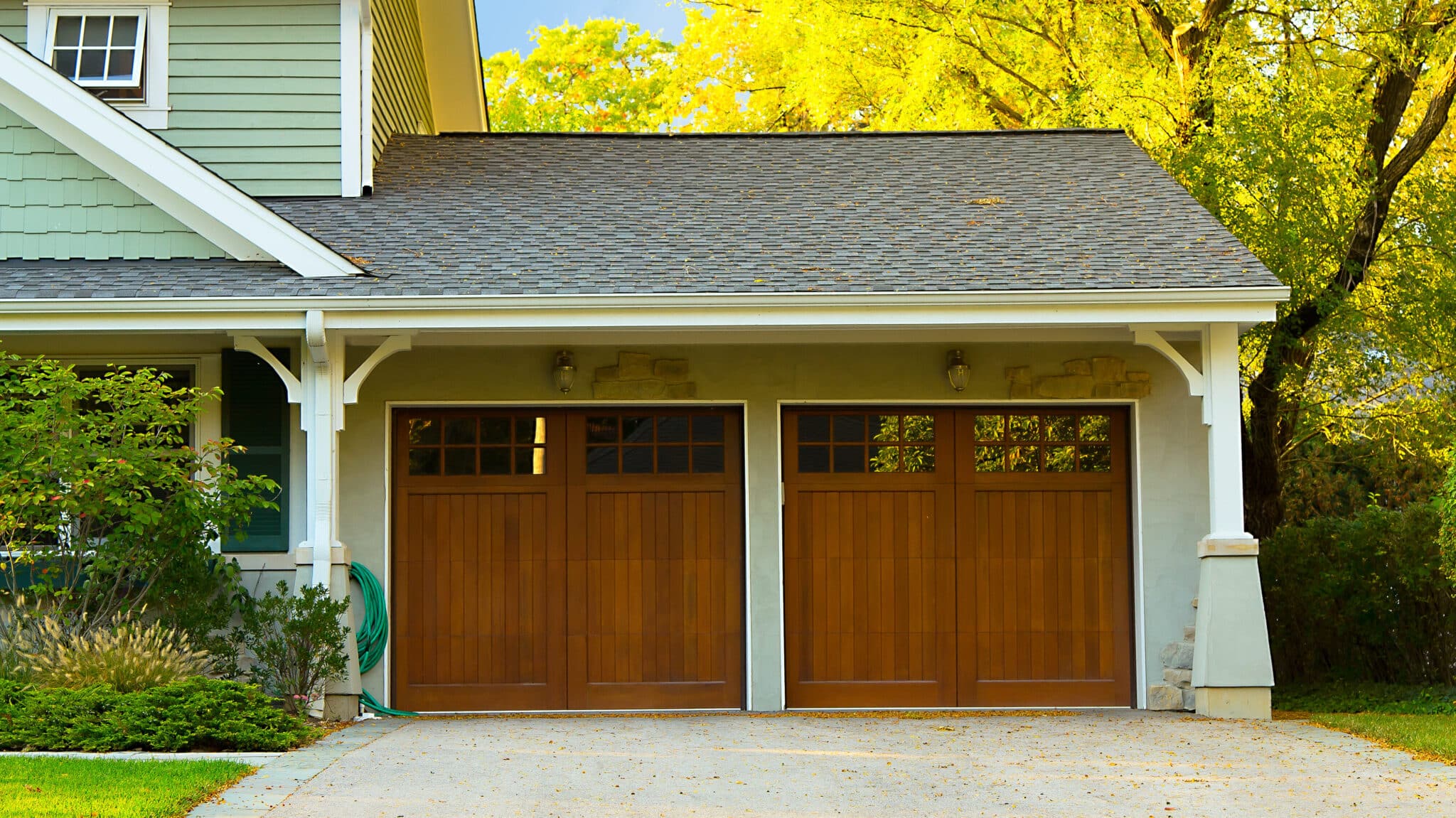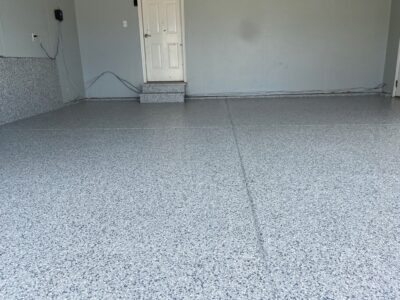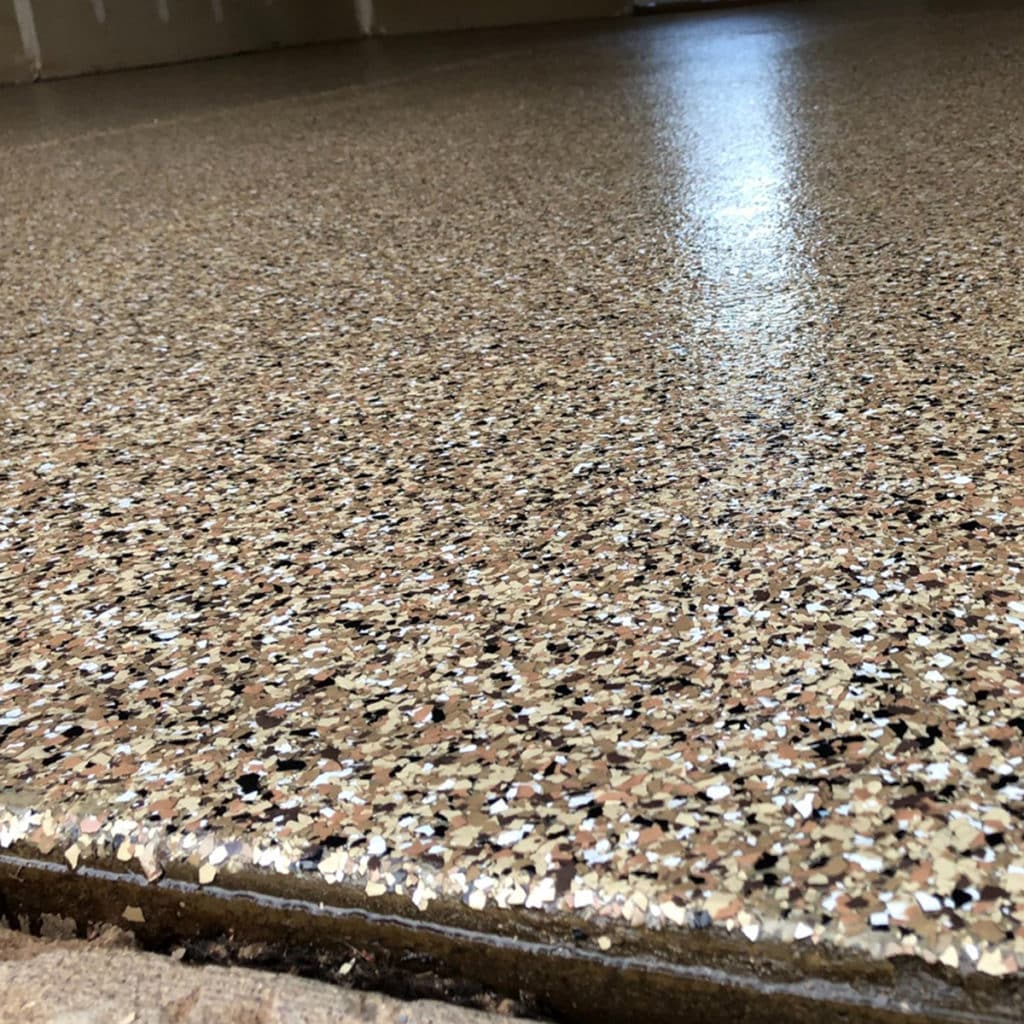
Garage floor coatings are a good solution for homeowners who want to improve the look of their garage, protect it from damage, and make it easier to clean. However, if you’re looking into getting a garage floor coating, you may be overwhelmed by the number of options available and may not know what material would be best for you. In order to help you make an informed decision, this blog will cover two common materials for garage floor coatings, polyurea and polyaspartic, their similarities and differences.
What is Polyurea?
Polyurea is a synthetic polymer used for waterproofing, often in industrial and commercial applications. It is first applied in liquid form, and when it hardens, it creates a durable barrier. In addition to use in garage floor coatings, it can be used on a number of different surfaces, including roofs, decks, foundations, boats, swimming pools, and retaining walls.
Advantages
Polyurea has many qualities that make it a good choice for garage floor coatings.
- Cures quickly: Polyurea can cure in as quick as a few seconds, so after it is poured, you can get back to using your garage quickly.
- Strength: This type of coating is incredibly strong and durable, making it ideal for use in a garage.
- Chemical resistance: It is also highly resistant to many different chemicals, so if you use your garage to store strong cleaners or other chemicals, it may be a good choice for you.
- Versatility: This coating can be applied to many different surfaces, both smooth and irregular.
- Elongation: It’s important that a garage floor coating has enough flexibility that it can move with the garage floor as it settles without cracking, and polyurea has excellent elongation properties.
- Temperature resistance: Not only does it resist both high and low temperatures, polyurea also maintains its flexibility in the heat and cold, making it ideal for garages and outdoor settings.
Disadvantages
Despite its many advantages for garage floor coatings, polyurea comes with some disadvantages as well, including:
- Lack of UV resistance: Polyurea is not resistant to UV rays, so it will fade or yellow in the sun.
- Hybrid polyurea: Polyurea is often sold in hybrid form, and mixing it with other materials often decreases its waterproofing properties.
- Cures too quickly: Although it can be more convenient to have quick curing times, sometimes, it can cause problems. If it cures too quickly, it can be hard to apply properly.
- Blistering: Blistering is another common problem with polyurea. Bubbles can form under the coating if it is not applied in the correct manner.

How Is Polyaspartic Different?
Polyaspartic is chemically and practically very similar to polyurea and can be used in the same applications but with some additional advantages. In fact, it was created to improve upon the shortcomings of polyurea.
- UV resistant: Unlike polyurea, polyaspartic is resistant to UV rays, so it won’t be damaged by the sun, making it ideal for outdoor uses.
- Better coverage: Because they have higher solid content and can go on thicker, polyaspartic coverings can be applied in a single coat.
- Improved strength and durability: As strong as polyurea is, polyaspartic is stronger and more durable. Most polyurea products on the market do not perform as well as polyaspartic.
- Easier to install: Polyaspartics have an extended pot life, meaning they are good to use for longer, which makes them easier to apply. While they cure quickly, they do not harden as fast as polyurea coatings, giving the installers more time to get everything just right before the curing process begins.
- Improved adhesion: Polyaspartic coatings adhere better to concrete surfaces, making them ideal for garage floors.

Which Is Better For Garage Floor Coatings?
When you’re driving over your floor coating every day, you want the most durable product available, which makes polyaspartic the better material for garage floor coatings.
Polyaspartics are known for their customization options. You can choose the color of the flakes in the coating and can create a subtle texture, a quartz-like appearance, or a terrazzo pattern. Your garage is part of your house, and you want it to be as appealing and attractive as the rest of your home.
Solid Custom Floor Coatings in Utah
Polyaspartic coatings aren’t just good for garage floors; they can also be used on commercial floors, driveways, patios, basement floors, and pool decks. In addition to coatings, we also offer garage storage racks that can be mounted on the ceiling or wall of your garage. For all your garage needs, contact Solid Custom Floor Coatings in Ogden, Utah.





